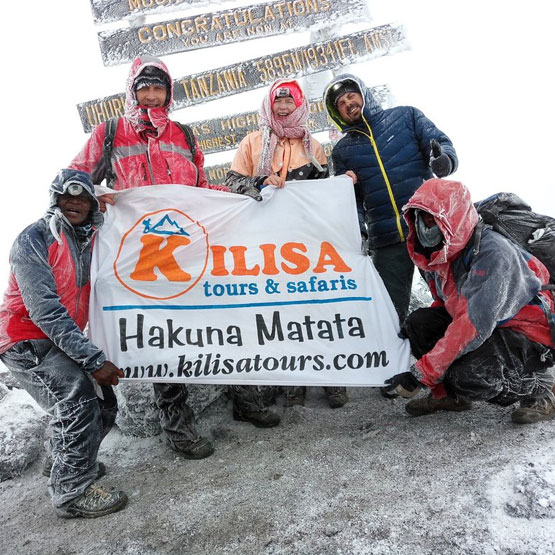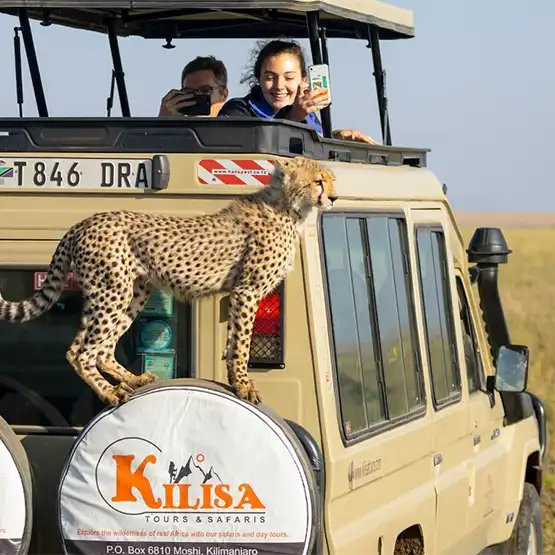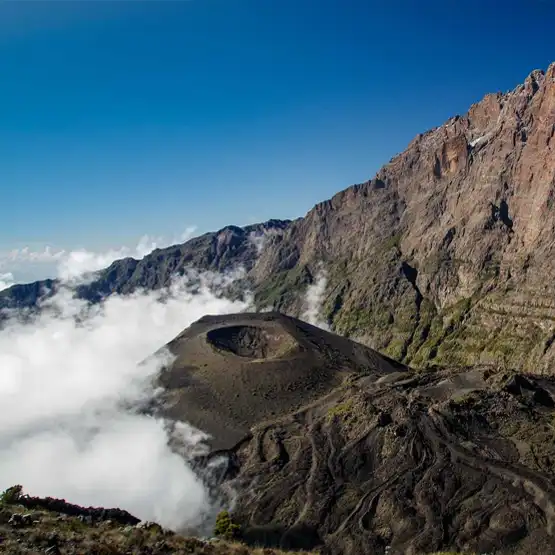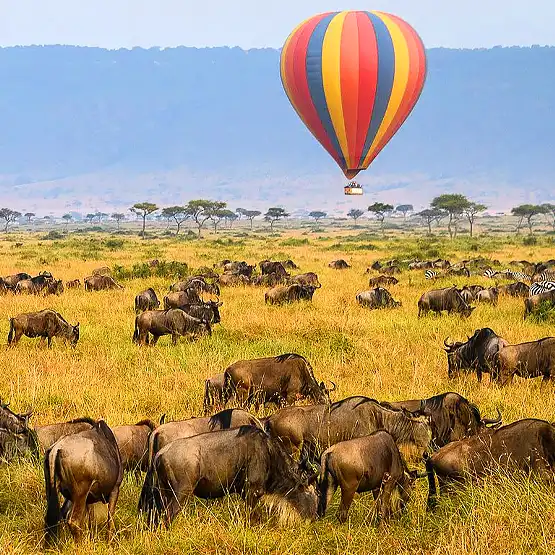Choosing the right Kilimanjaro climbing tour can be the difference between a life-changing adventure and a disappointing experience. With over 30,000 climbers attempting the summit each year, not every tour operator offers the same level of authenticity and service. Ensuring your tour is authentic means diving deeper into reviews, verifying certifications, and understanding what each operator provides.
Take a moment to research the history of the tour operators. Check if they are licensed by the Kilimanjaro Porters Assistance Project (KPAP) as it ensures fair treatment of porters. Look for operators that offer detailed itineraries, local guides, and real client testimonials. Remember, a genuine booking experience is built on trust, transparency, and a commitment to responsible tourism.
- Research reputable tour operators with positive reviews and KPAP certification.
- Verify operator credentials, including safety records and licenses.
- Read detailed reviews and testimonials from previous climbers.
- Consult past climbers for first-hand advice and tips.
- Ensure you understand all included services in the tour package.

How to Ensure an Authentic Kilimanjaro Climbing Tour Booking Experience
Booking an authentic Kilimanjaro climbing tour starts with thorough research. Look for operators that are well-reviewed and have positive testimonials. Make sure they are licensed by the Kilimanjaro Porters Assistance Project (KPAP). Choosing an operator like Kilisa Tours ensures ethical treatment of porters and quality service. Find more about their offerings in this post.
Verifying the credentials of tour operators is crucial. Check if they meet safety standards and are recognized by local authorities. Licensed operators will provide better safety measures and experienced guides. Don’t hesitate to ask for proof of their certifications. A good operator will always be transparent about their credentials.
Reading reviews from past climbers can provide insights into the operator’s performance. Look for reviews that mention guide knowledge, equipment quality, and porters’ treatment. Engaging with previous climbers can offer firsthand advice and tips for the trek. Check travel forums and social media for recent feedback. Recommendations from friends or family who have trekked can be invaluable.
Understanding what is included in the tour package can save you from unexpected surprises. Authentic operators offer detailed itineraries, including acclimatization schedules, meals, and equipment. Knowing what to expect helps you prepare better and enhances your climbing experience. It’s essential to confirm all included services before finalizing your booking. According to here is the article, having complete information brings peace of mind and ensures a smoother journey.
Step 1: Research Tour Operators
Start by identifying reputable tour operators who specialize in Kilimanjaro climbs. Look for operators with a strong online presence and positive reviews. Visit their official websites to get a feel of their services and offerings. Some operators may have blogs or videos that show their tours in action. This initial research will give you a solid understanding of the available options.
Utilize social media platforms to find feedback from previous clients. Check travel forums and dedicated climbing groups for recommendations. You can also search for hashtags related to Kilimanjaro climbs for user-generated content. Seeing real experiences shared by climbers can be very insightful. These platforms can provide honest opinions and firsthand accounts.
Make a list of potential tour operators and compare their offerings. Look at what each package includes, like accommodation, meals, and guide services. Don’t forget to consider the cost of each tour and what it covers. Some operators might offer extra services like airport transfers or gear rental. Comparing multiple operators will help you find the best fit for your needs.
Finally, contact the tour operators directly with any questions you may have. Reliable operators will happily provide detailed answers and additional information. Ask about their climbing success rates and safety records. A transparent operator will make you feel confident in your choice. This direct communication can also help gauge their customer service quality.
Step 2: Verify Operator Credentials
Checking the credentials of your chosen tour operator is essential for a safe and authentic climbing experience. Ensure the operator is licensed by the relevant authorities in Tanzania. This includes certifications from the Kilimanjaro Porters Assistance Project (KPAP). Licensed operators guarantee higher safety standards and fair treatment of porters. They are committed to following ethical practices.
Ask for proof of their safety records and insurance coverage. Reliable operators will provide these without hesitation. Having proper insurance coverage is crucial in case of emergencies. Check if they have evacuation plans and necessary medical support on hand. Transparency in these matters indicates a trustworthy operator.
Look into their affiliations with reputable organizations. Members of climbing and trekking associations are often more reliable. These affiliations show a commitment to industry standards. Search for operators listed with Adventure Travel Trade Association (ATTA) or Mountain Kilimanjaro Association (MKA). These memberships can add credibility to their service.
Don’t hesitate to ask previous clients about their experiences. Verified testimonials can provide insights into the operator’s reliability. You can find reviews on travel forums and social media platforms. Reputable operators often have a history of satisfied climbers. This feedback can help reinforce your decision.
Step 3: Check Reviews and Testimonials
Reading reviews and testimonials provides a wealth of information about a tour operator’s performance. Look for feedback that discusses the guide’s expertise, food quality, and equipment provided. Reviews can highlight both strengths and weaknesses. Pay attention to how operators respond to negative feedback. Their responses can show their level of customer service and commitment to improvement.
Trustworthy sources for reviews include TripAdvisor, Yelp, and Google Reviews. These platforms often have detailed accounts of past clients’ experiences. Filtering reviews by most recent can give you an up-to-date perspective. Reviews that are a few years old may not reflect the current service standards. Focus on the overall rating as well as specific comments.
Engage with reviews that offer detailed insights. Long reviews often provide a better understanding of what to expect. Short reviews may not capture the full experience. Look for mentions of how well porters and guides are treated. This can help gauge the ethical practices of the operator.
Contacting past climbers for direct testimonials can be invaluable. If an operator has references, reaching out to them can provide honest feedback. Social media groups and forum discussions are also useful for finding personal stories. Previous clients may provide tips and advice. This direct communication can clarify any doubts you may have.
Consider both positive and negative reviews to get a balanced view. All operators may have some negative feedback, but consistent issues are red flags. Pay close attention to complaints about safety, communication, and services. If several hikers mention the same problem, it may indicate a systemic issue. Use this information to make an informed decision.
Lastly, some tour operators feature testimonials on their websites. While these are often positive, they still provide valuable insights. Compare these with external reviews for consistency. If the testimonials align with other reviews, it’s a good sign. This consistency reinforces the operator’s credibility and reliability.
Step 4: Consult Previous Climbers
Speaking with people who have already climbed Kilimanjaro can provide first-hand insights. These climbers can share their experiences and offer practical advice. They can also give you tips on what to pack and how to prepare. This personalized information can be more valuable than generic tips online. Reaching out to past climbers can make your preparation more effective.
You can find previous climbers on social media and travel forums. Join hiking and climbing groups to connect with these individuals. They are often eager to share their stories and helpful tips. Asking questions in these groups can yield detailed answers. It’s a great way to gain authentic perspectives on different tour operators.
Consider arranging a call or meeting with one or more past climbers. Direct conversations can offer more detailed explanations of their experiences. You can ask specific questions about the tour operator, guides, and services. Listening to their stories can provide a clearer picture of what to expect. It also helps you build confidence in your chosen operator.
By consulting previous climbers, you might learn about hidden gems or avoid common pitfalls. They can provide insights that aren’t mentioned in brochures or websites. Hearing their honest feedback can help you make more informed decisions. This can lead to a better overall experience. Their experiences can often highlight the small details that make a big difference.
Some tour operators may be able to provide references from past clients. Don’t hesitate to use these resources. Connecting with someone who has used the same operator can provide validation. It ensures the authenticity of their services. It also reassures you of their reliability and commitment to client satisfaction.
Gathering this first-hand information reinforces your research and verifies the credibility of the tour operator. Taking this extra step can significantly enhance your climbing adventure. it combines real-life experiences with your own expectations. The advice and knowledge gained from previous climbers will contribute to a safe and enjoyable journey up Kilimanjaro.
Step 5: Understand the Included Services
Before booking your Kilimanjaro tour, it’s crucial to know what services are included. Different operators offer varying packages, so details matter. Check if the cost covers park fees, meals, and accommodation. Some operators provide tents, while others might charge extra. Knowing these details can help you avoid hidden costs.
Check if the tour includes equipment rental, like trekking poles and sleeping bags. If these are not provided, you may need to bring your own. Ask about the quality and condition of the equipment if rentals are included. Having reliable gear is essential for a successful climb. Make sure you know what you’ll need to bring versus what is provided.
Inquire about the type of meals offered during the climb. Quality food is vital for maintaining energy levels. Some operators include full-board meals, while others may only provide basics. Knowing the meal plans can help you prepare accordingly. Special dietary needs should also be discussed in advance.
Transportation logistics are another key aspect to understand. Verify if transportation to and from the Kilimanjaro park gate is included. Some operators offer airport pickups and drop-offs as part of the package. Knowing these details can simplify your travel plans. It ensures smooth transfers and less stress upon arrival.
Detailed itineraries often make a significant difference in your tour experience. Look for operators that provide day-by-day breakdowns of the trek. This helps you understand the acclimatization schedule and route plan. Having clear expectations of the daily activities makes for a better experience. You can prepare mentally and physically for each day’s challenges.
Lastly, ask about emergency provisions like first-aid kits and rescue plans. Reliable operators will be prepared for all scenarios. Check if there’s a medical professional or a guide trained in first aid. Knowing these safety measures are in place gives peace of mind. A prepared operator ensures a safer trekking experience.
Key Elements to Consider When Choosing a Kilimanjaro Tour
Selecting the right Kilimanjaro tour involves several key considerations. First, evaluate the operator’s track record and reputation. Reliable operators like Kilisa Tours offer detailed itineraries and have positive reviews. They ensure your safety and provide experienced guides. The experiences of past climbers can guide your decision.
Consider the acclimatization schedule provided by the tour operator. Proper acclimatization is crucial for a safe climb. Look for tours that include rest days to help you adjust to the altitude. This can make a significant difference in your success rate. A well-thought-out schedule ensures better health and energy levels.
Evaluate what is included in the tour package to avoid hidden costs. Comprehensive packages cover meals, accommodation, park fees, and equipment rentals. Double-check what services come with your booking price. Knowing this helps you prepare financially and logistically. Clear understanding of inclusions avoids last-minute surprises.
Review the type of support provided during emergencies on the climb. Operators should have well-equipped first-aid kits and emergency plans in place. It’s essential they are prepared for altitude sickness or injuries. Some might include medical professionals as part of their team. Safety measures give peace of mind during your adventure.
A significant factor is how well porters and guides are treated by the company. Ethical treatment includes fair wages, proper gear, and adequate food for staff members.
Choose operators adhering to ethical standards like KPAP certification.
Supporting ethical practices enhances not just your trip but also local communities.
Responsible tourism contributes positively to everyone involved.
It’s worth checking operator’s commitment towards porter welfare policies.
Benefits of Choosing Authorized and Experienced Tour Operators Like Kilisa Tours
Choosing an authorized and experienced tour operator like Kilisa Tours ensures a safe and enjoyable climb. Their knowledgeable guides are well-versed in the nuances of Kilimanjaro treks. This experience translates to better route planning and risk management. It increases your chances of a successful summit. Trusting experienced guides gives climbers peace of mind.
Authorized operators adhere to strict safety standards set by local authorities. Kilisa Tours, for example, is licensed and follows ethical practices. They ensure porters are fairly compensated and well-equipped. This commitment to safety and ethics reduces risks and enhances the overall experience. Knowing your tour operator is legitimate provides reassurance.
Experienced operators like Kilisa Tours have a track record of customer satisfaction. Positive reviews and testimonials speak volumes about their service quality. They often offer comprehensive packages that cover all essential services. This includes meals, accommodation, and transportation. Booking with them means fewer worries about logistics.
Choosing a company with good equipment is also crucial. Kilisa Tours provides high-quality gear and supplies for climbers. Reliable equipment can make your climb more comfortable and safe. The condition of the tents, sleeping bags, and other gear directly impacts your experience. Trustworthy operators ensure everything you need is in top condition.
Selecting an experienced operator also means access to emergency support. Kilisa Tours is prepared for any medical emergencies that may arise during the climb. They have first-aid kits and trained personnel ready to assist. Their preparedness can be a lifesaver in critical situations. This readiness ensures your safety throughout the trek.
Finally, supporting authorized operators like Kilisa Tours promotes responsible tourism. Their practices benefit local communities and the environment. By choosing such operators, you contribute to sustainable tourism. It ensures that the natural beauty of Kilimanjaro is preserved for future generations. Responsible tourism enriches your travel experience while making a positive impact.
Common Pitfalls to Avoid in Tour Bookings
One common pitfall in tour bookings is not reading the fine print. Skimming over terms and conditions can lead to misunderstandings about what is included. Always confirm what services are provided and what are extra costs. Check if there are any cancellation fees and refund policies. Understanding these details can save you from unwelcome surprises.
Another mistake is not comparing multiple tour operators. Sticking to one option without exploring others can result in higher costs or lower service quality. Compare prices, services, and reviews of at least three operators. This ensures you get the best value for your money. Taking time to compare can greatly enhance your overall experience.
Booking at the last minute is often a bad idea. Late bookings might limit your options to less reputable operators. Planning and booking well in advance gives you a wider selection of trusted companies. It also allows for better preparation and fewer stressors. Early bookings often come with discounts and better package deals.
Ignoring customer reviews can also be a costly error. Reviews provide real insights into the operator’s reliability and service quality. Look for recent feedback to get an accurate picture. Reading both positive and negative reviews helps you make informed decisions. Relying solely on the operator’s website can be misleading.
Paying without verifying the operator’s credentials is risky. Ensure the tour company is licensed and well-reviewed. Verifying credentials protects you from fraud and poor service. Ask for certifications and check their legitimacy. Trusted operators like Kilisa Tours make this information readily available.
Not asking questions before booking can cause issues later. Clear all doubts regarding itineraries, accommodations, and services. This helps set correct expectations and ensures transparency. A good tour operator will happily answer all your queries. Communication is key to a smooth and enjoyable experience.
Why Kilimanjaro and What to Expect on Your Climbing Adventure
Mount Kilimanjaro, the highest peak in Africa, attracts climbers from all over the world. Its breathtaking views and unique ecosystems make it a bucket-list destination. The climb offers diverse landscapes from lush rainforests to barren alpine deserts. Reaching the summit gives a tremendous sense of accomplishment. Kilimanjaro’s allure lies in both its beauty and challenge.
The climb involves trekking through different climate zones, which adds to the adventure. You’ll start in tropical rainforests and progress to moorlands and alpine deserts. Each zone offers its own unique scenery and wildlife. This variety keeps the trek exciting and dynamic. Experiencing these changing environments is a highlight for many climbers.
One of the main challenges is adjusting to the altitude as you ascend. Proper acclimatization is crucial to prevent altitude sickness. Tour operators usually include rest days in the itinerary to help climbers adjust. Following the guide’s advice on pace and hydration also makes a big difference. Your physical preparation will be tested, but patience and resilience are key.
Expect a physically demanding journey, but the reward is worth the effort. Daily hikes can range from 4 to 12 hours, depending on the route and your progress. You’ll camp under the stars on the mountainside, which is an experience in itself. The final push to the summit typically starts at midnight to reach the peak by sunrise. Witnessing the sunrise from Uhuru Peak is an unforgettable moment.
Your climbing team will include experienced guides, porters, and possibly a cook. They all play vital roles in ensuring your success and safety. The porters carry your main gear, allowing you to focus on the climb. Guides offer support and share their knowledge of the mountain. Their expertise enhances your overall experience.
Choosing a reliable tour operator like Kilisa Tours ensures a well-organized climb. You’ll have access to quality equipment, nutritious meals, and emergency support. Reading about Kilisa Tours in this post provides more insight. A trusted operator can make your Kilimanjaro adventure both safe and memorable. Planning and preparation are vital, but the experience will reward you tenfold.





